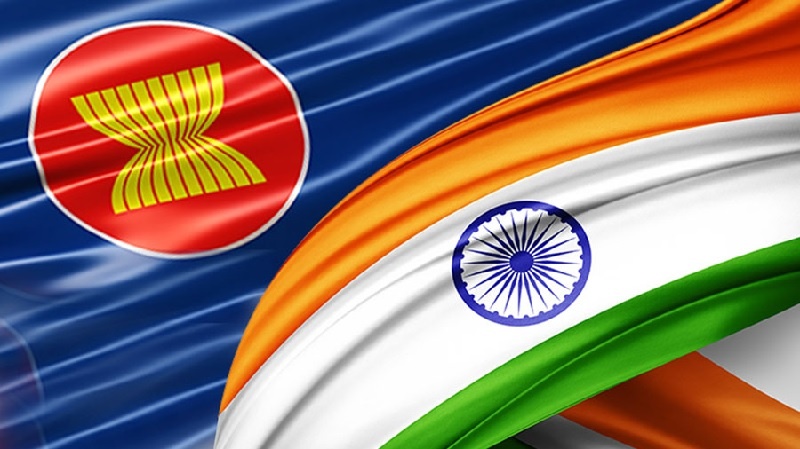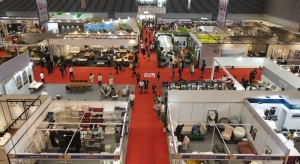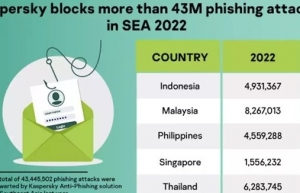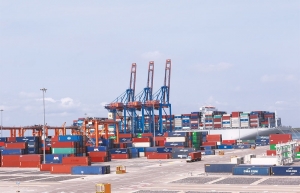India’s ASEAN deal upgrade offers new opportunities
 |
| India’s ASEAN deal upgrade offers new opportunities, Source: aseanbriefing.com |
The 20th ASEAN-India Economic Ministers’ meeting held over a week ago in Indonesia endorsed the roadmap for ASEAN-India Trade in Goods Agreement (AITIGA), along with the plan for review negotiations for its joint committee.
The review is expected to make the AITIGA more user-friendly for businesses, as well as support for sustainable and inclusive growth. It is also expected to enhance and diversify trade while bringing symmetry in the bilateral trade between ASEAN countries and India.
The ministers agreed to have a quarterly schedule of negotiations by the joint committee in order to conclude the review in 2025.
The AITIGA was signed in 2009. ASEAN and India registered a two-way trade of $131.5 billion in the fiscal year of 2022-2023, accounting for 11.3 per cent of India’s global trade in this period. The trade between Vietnam and India increased to $15 billion in 2022 as per Vietnamese data, registering a growth of 14 per cent over the previous year. India’s exports to Vietnam amounted to $7.08 billion, while exports by Vietnam to India stood at $7.96 billion.
In the first seven months of 2023, total bilateral trade value hit $8.15 billion including $4.5 billion worth of Vietnam’s exports, and $3.65 billion worth of Vietnam’s imports.
India’s main exports to Vietnam include metals, machinery, electronics and electronic equipment, and agricultural products. Vietnam exported to India many types of products such as electronic equipment, chemicals, machinery, and animal feed.
“An upgraded AITIGA in the near future is expected to increase trade between India and ASEAN, particularly Vietnam,” said the Indian Embassy to Vietnam.
Under the agreement, ASEAN member states and India have agreed to open their respective markets by progressively decreasing and eliminating duties on 76.4 per cent of goods and liberalising tariffs on over 90 per cent of goods. Currently, import tariffs for many types of agricultural materials have been removed, from an average of 10-15 per cent.
According to the ASEAN Secretariat, the new version will be aimed to provide more convenience for enterprises of the participating economies, therefrom helping amplify trade and investment ties between India and Vietnam in particular and between India with the other ASEAN member states. This will also help further strengthen the regional supply chains and better respond to regional and global challenges now.
Indian Ambassador to Vietnam Sandeep Arya said that hundreds of Indian companies in Vietnam are creating economic values in such sectors as consumer goods, car sub-systems, sugar and coffee, IT services, mineral processing, hydrocarbons, garments, engineering goods, and services such as aviation, banking, food, and tourism.
“New opportunities in energy, infrastructure, electronics and digital technologies and arrangements for facilitating trade, bilateral digital payment transactions, and direct shipping are being discussed,” he said. “The AITIGA of 2009 is being reviewed to expand preferential trade measures between us. Growing civil aviation is providing a bridge to direct travel and tourism through over 50 flights per week, and further expansion is being planned.”
In 2017, the Vietnamese government promulgated Vietnam’s special import tariff plan to implement the commitments under the ASEAN-India Free Trade Area for 2018-2022.
Under the plan, just under 5,600 lines of tariffs – or almost 60 per cent of the plan – have been either erased or reduced. Product groups with the most tax slashes include meat-based products, vegetables, and many other types of agricultural products.
As of August 20, Vietnam had 378 valid Indian ventures, registered at $1.07 billion. The projects operate in industries including energy, mineral exploration, agro-processing, sugar, tea, coffee, agro-chemicals, IT, and auto components. Vietnam, meanwhile, currently has six projects in India worth $28.55 million, operating in the industries of pharmaceuticals, IT, chemicals, and building materials.
Vietnam has also become an attractive market for renewable energy for Indian companies. Adani Group has invested in the Adani Phuoc Minh wind power plant and the Adani Phuoc Minh solar power plant.
The wind power project saw construction beginning in 2020 and commercial operation seen in October 2021. Located in south-central Ninh Thuan, the 27.3MW plant is a joint venture between Adani and Vietnam’s TSV. Meanwhile, the 50MW solar power plant, also situated in Ninh Thuan, was commissioned in 2020 and is currently operational.
| At the fifth meeting of the India-Vietnam Joint Trade Sub-Commission in mid-August in New Delhi, both sides reviewed the progress on bilateral trade and economic cooperation and discussed ways to unlock the vast untapped potential in bilateral trade to enable the business communities from the two sides to benefit from the partnership of two of the fastest growing economies. Both sides identified potential sectors such as agriculture, fisheries, textiles, footwear, pharmaceuticals, chemicals, fertilisers, machinery and equipment, consumer products, energy, and the vehicle industry, for expanding trade cooperation and agreed to work together to resolve market access issues and technical barriers faced by the exporters through regular and sustained bilateral discussions. The Indian side raised the issues of pending registration of Indian fishery and meat establishments for export, restricted market access in public procurement of drugs for Indian pharmaceutical companies and high anti-dumping duties imposed on Indian polyester filament yarn products and sorbitol. The Indian side highlighted the potential in the service sector cooperation and suggested cooperation in IT, financial services, education, tourism, healthcare, telemedicine, medical tourism, and the startup ecosystem. The Indian side also suggested mutual recognition agreements on professional services, internationalisation of RuPay cards and QR-based payment systems, and a domestic currency trade settlement. Both sides also discussed logistics challenges affecting bilateral trade and agreed to continue efforts to explore direct shipping services, collaboration in freight movement, and improving air connectivity. Source: Indian Embassy to Vietnam |
 | VIFA ASEAN 2023 - A must visit trade show for furniture The 2023 VIFA ASEAN trade show will attract nearly 200 prestigious wood and furniture exhibitors and will feature more than 600 booths from 12 Vietnamese provinces and 10 other foreign markets from August 29 to September 1. |
 | Cyber attacks hit ASEAN’s finance, healthcare sectors most: Kaspersky Finance and healthcare are the top two sectors experiencing cyber attacks in Malaysia this year despite growing resilience and awareness among financial institutions, said Kaspersky Southeast Asia general manager Yeo Siang Tiong. |
 | RCEP states already looking to expand trade participation Just a few months after it came into being, the Regional Comprehensive Economic Partnership has decided to expand its membership, with Vietnam expected to be a big trade beneficiary. |
What the stars mean:
★ Poor ★ ★ Promising ★★★ Good ★★★★ Very good ★★★★★ Exceptional
Related Contents
Latest News
More News
- Foreign leaders extend congratulations to Party General Secretary To Lam (January 25, 2026 | 10:01)
- Russian President congratulates Vietnamese Party leader during phone talks (January 25, 2026 | 09:58)
- Worldwide congratulations underscore confidence in Vietnam’s 14th Party Congress (January 23, 2026 | 09:02)
- Political parties, organisations, int’l friends send congratulations to 14th National Party Congress (January 22, 2026 | 09:33)
- 14th National Party Congress: Japanese media highlight Vietnam’s growth targets (January 21, 2026 | 09:46)
- 14th National Party Congress: Driving force for Vietnam to continue renewal, innovation, breakthroughs (January 21, 2026 | 09:42)
- Vietnam remains spiritual support for progressive forces: Colombian party leader (January 21, 2026 | 08:00)
- Int'l media provides large coverage of 14th National Party Congress's first working day (January 20, 2026 | 09:09)
- Vietnamese firms win top honours at ASEAN Digital Awards (January 16, 2026 | 16:45)
- ASEAN Digital Ministers' Meeting opens in Hanoi (January 15, 2026 | 15:33)

 Tag:
Tag:



















 Mobile Version
Mobile Version